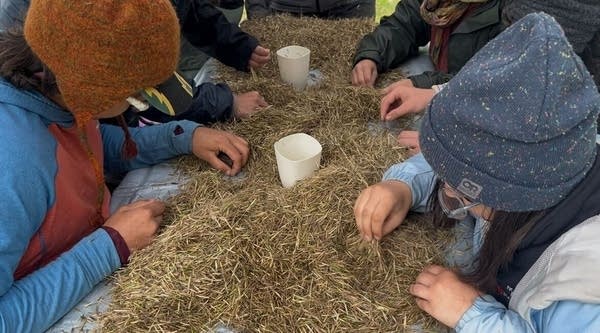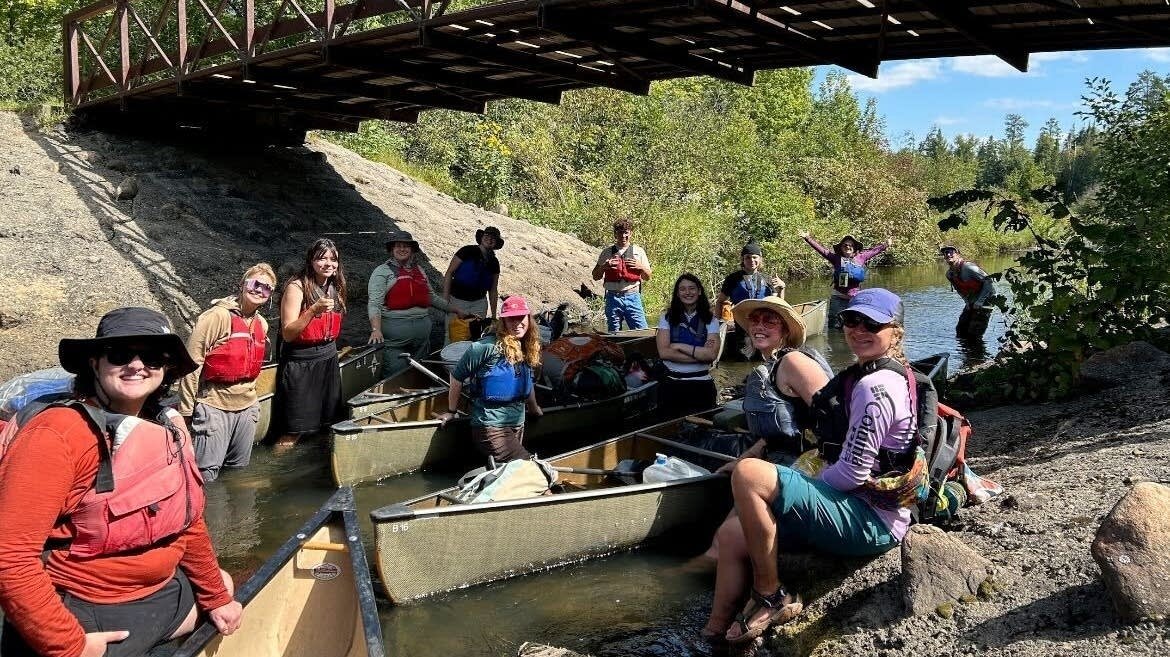Ten Augsburg University students are participating in an educational adventure along the Mississippi River this fall semester.
The program is called the “River Semester.” The trek began early September at the river’s headwaters in northern Minnesota. Students, alongside faculty and volunteers, will travel via canoe, sailboat and car down to the Gulf Coast over a course of approximately 100 days.
Along the way, the group will stop at varying points along the river to meet with guest speakers as well as experience educational opportunities touching on the Mississippi River’s history and significance to communities located along the river.
Summer May is a citizen of the Red Lake Nation and one of the students taking part in River Semester.
“It's bridging the connection between knowledge and application, and mind and place. We are directly interacting with the river,” May said. She is majoring in environmental education and minoring in history at Augsburg University.
“We're meeting the people who are involved in the river. Both Indigenous and post-colonization, and all of that is so incredibly important,” she said.
Joe Underhill, associate professor and program director at Augsburg, started the program 10 years ago. He says the River Semester runs every other year in the fall.
“The students are really learning about different ways to relate to the natural world. They're learning about self-reliance. They're developing, in many cases, a greater confidence in their own abilities, because this is a very challenging, a very different way to learn and live,” Underhill said.
The group pitches tents and sets up camp every day of the trip. Regular lectures are held, and assignments still have due dates in what Underhill describes as a “traveling classroom.” He says classroom discussions have been held in laundromats, libraries and church basements in previous years.
“We're not just in class for an hour and a half and then back to the dorms,” Underhill said.
Within the first few days of the semester, the group participated in a wild rice harvesting camp. They met with community members of the Leech Lake Band of Ojibwe. The Mississippi River flows into Leech Lake, a reservoir for the river.

Students learned how to gather wild rice in canoes using knocking sticks, how to remove grain husks and prepare wild rice for meals.
“We learned from the elders there, and the hosts there, the spirituality that ties in with the river,” May said. “That is another thing that is incredibly emphasized along this trip, is our connection to the river and its significance beyond.”
May says her spirituality has influenced her own perspective when thinking about the Mississippi River.
“Not everyone sees it as a source of beauty and importance, and how the Mississippi is a life-giver that we need to respect and cherish and honor. But instead, they see it as a commodity,” she said. “As an Indigenous person, I think that is the key difference between my experience and someone who grew up with other morals or values.”
The group will learn about the impacts the river has had on agriculture and industrialization, which May says can be complex but important stories. While the journey has just begun, she says she feels as if she has had two weeks’ worth of experience in just one.
“The Mississippi itself, the river, it's very powerful. And to have instructors tell us of its ecology, its impact, and to feel the power of the river as we we’re canoeing down it,” she said.
Wild rice harvested at the camp with the Leech Lake Band of Ojibwe will travel along with the group to St. Louis and New Orleans, where Underhill says it will be gifted to Indigenous guest speakers.
The journey is anticipated to finish mid-December.




